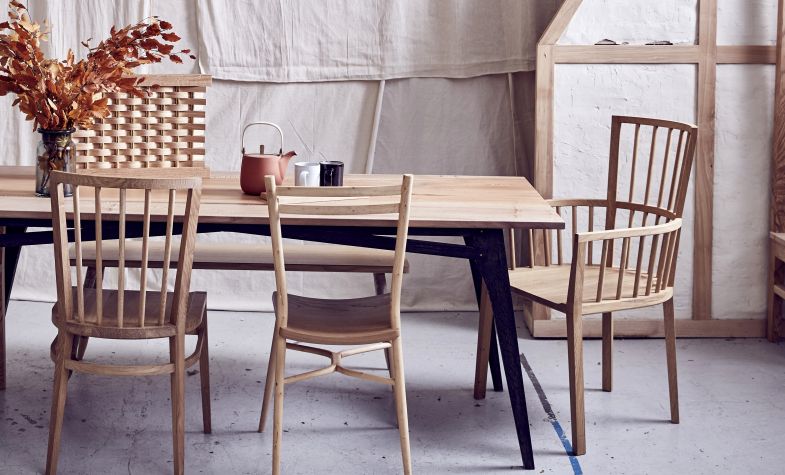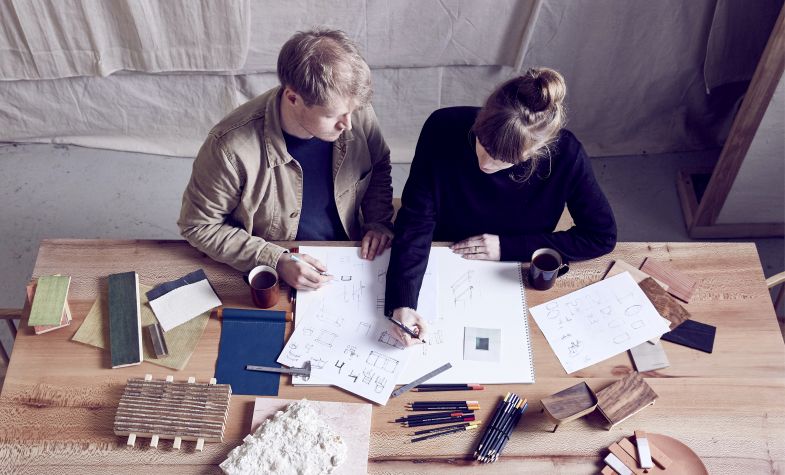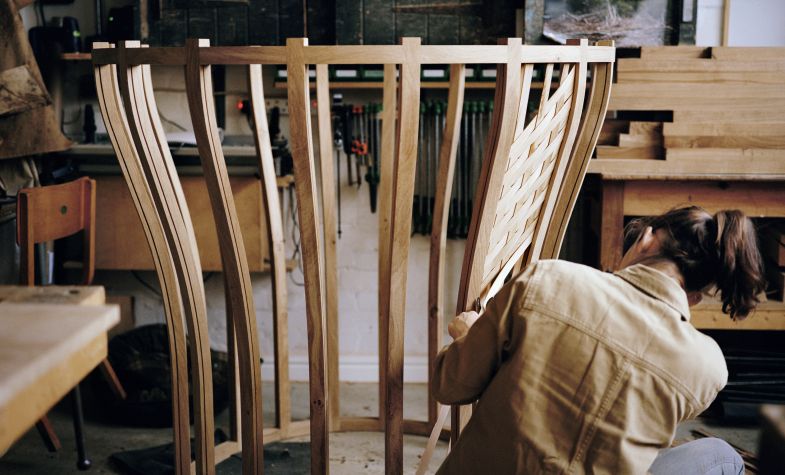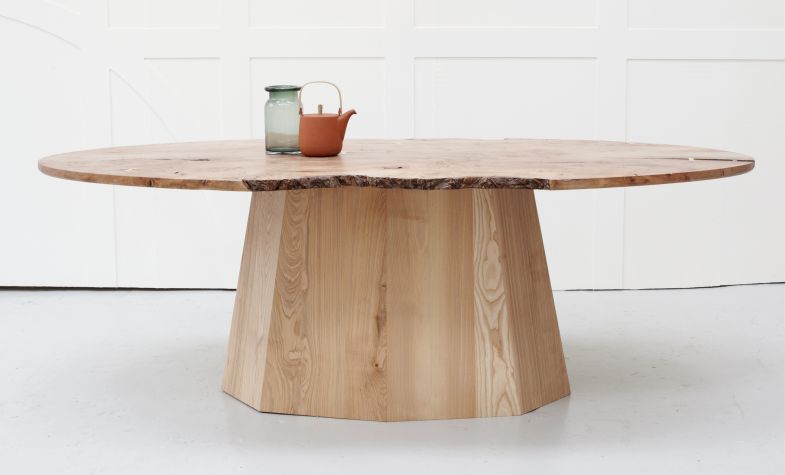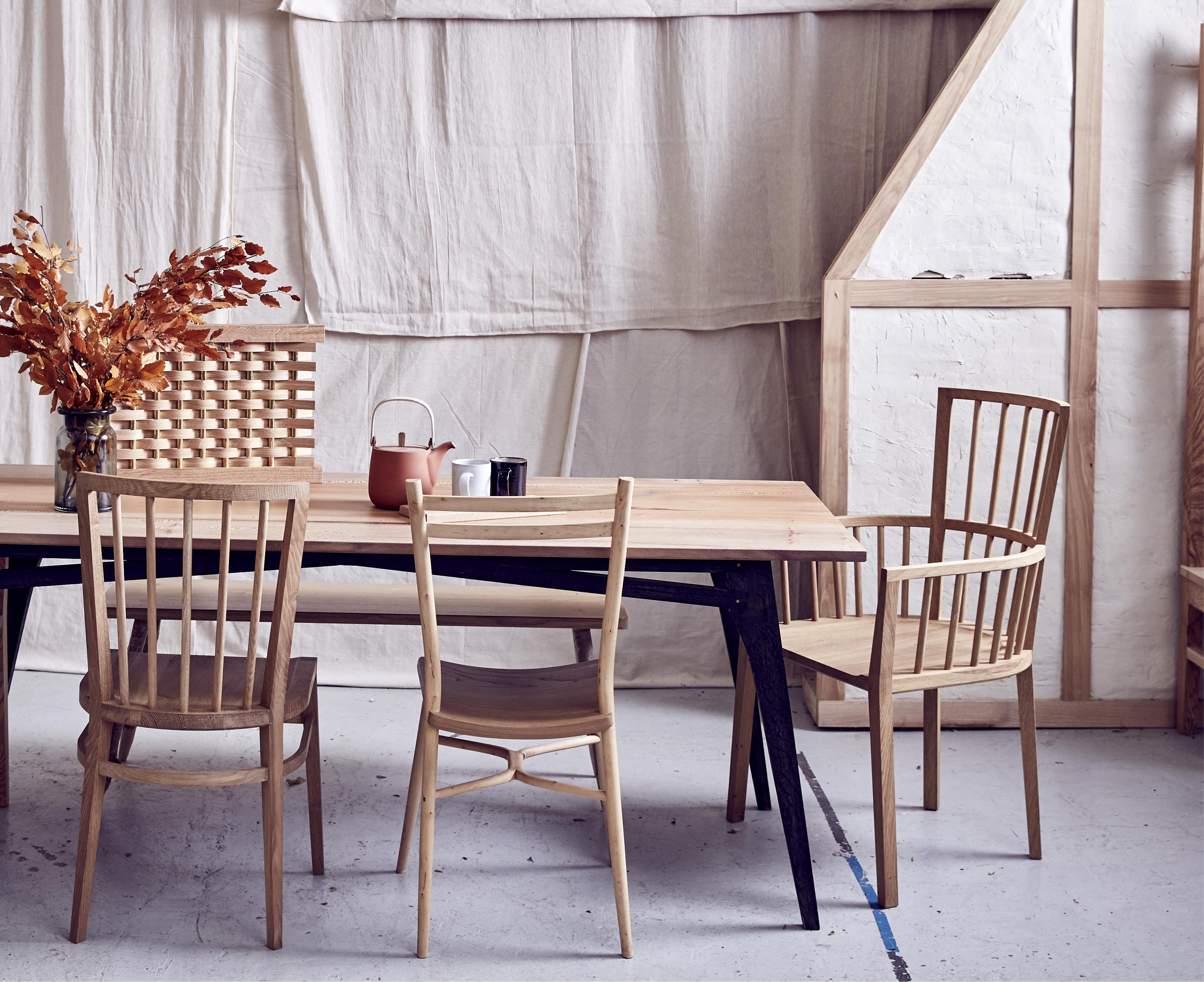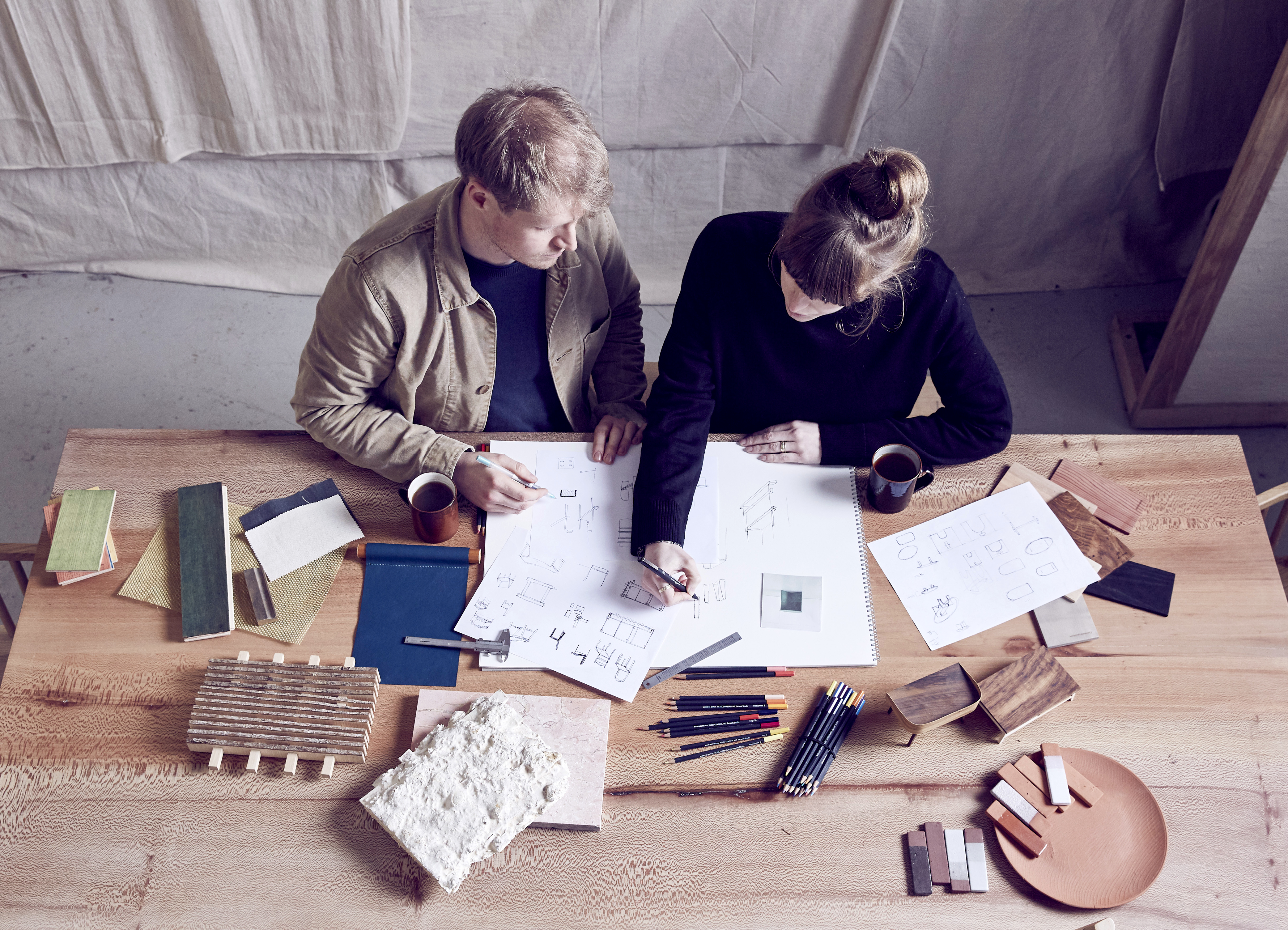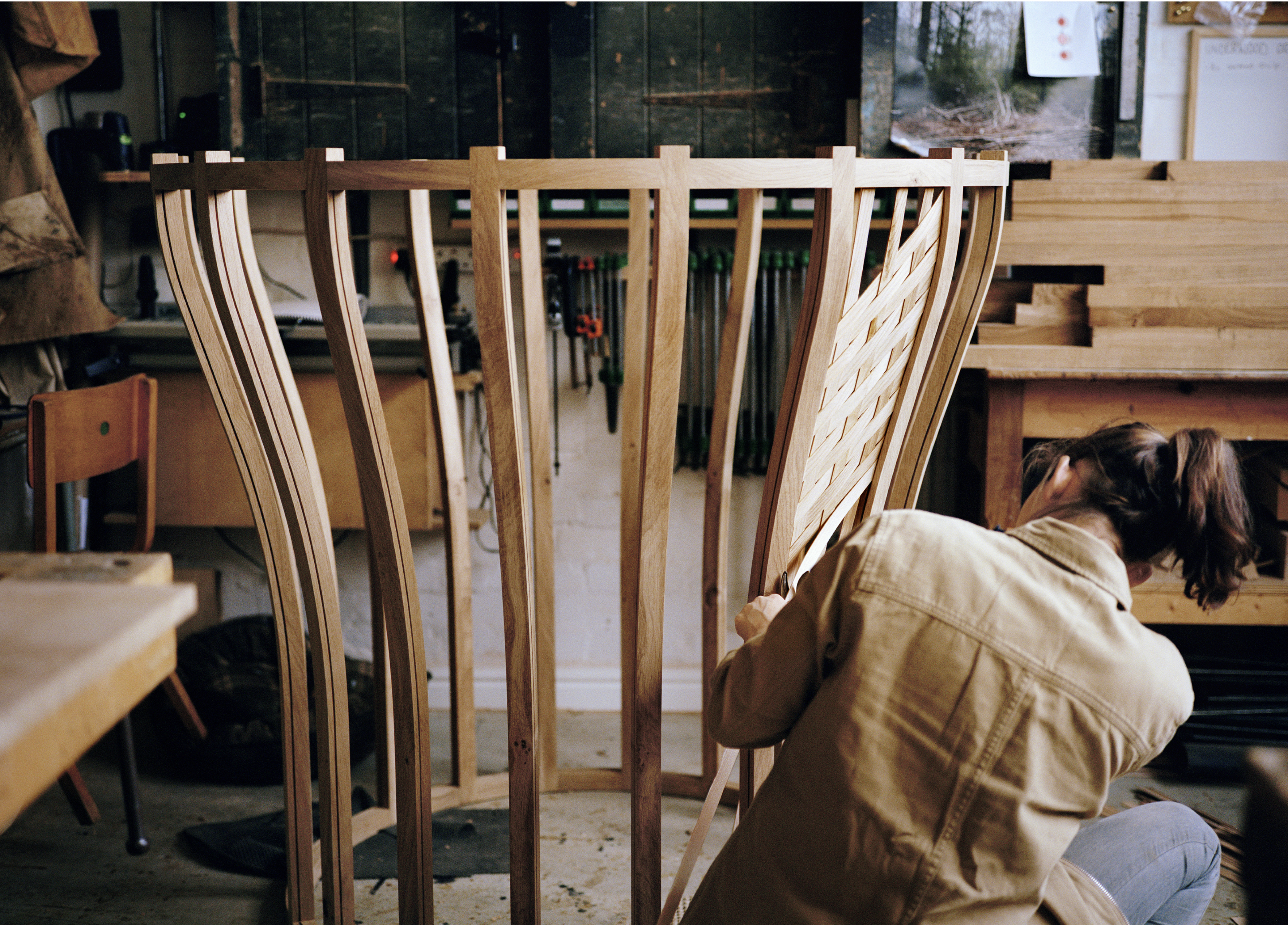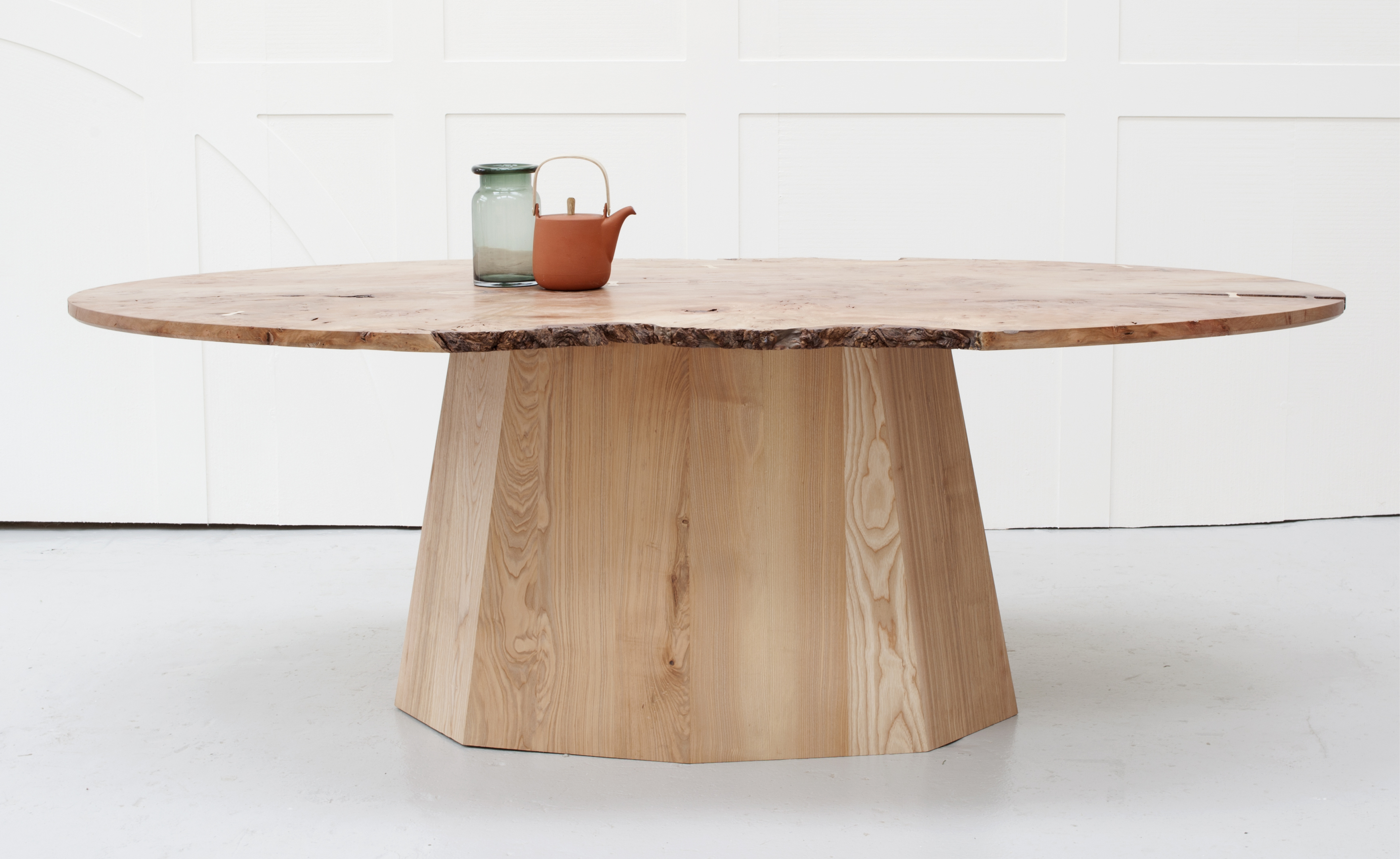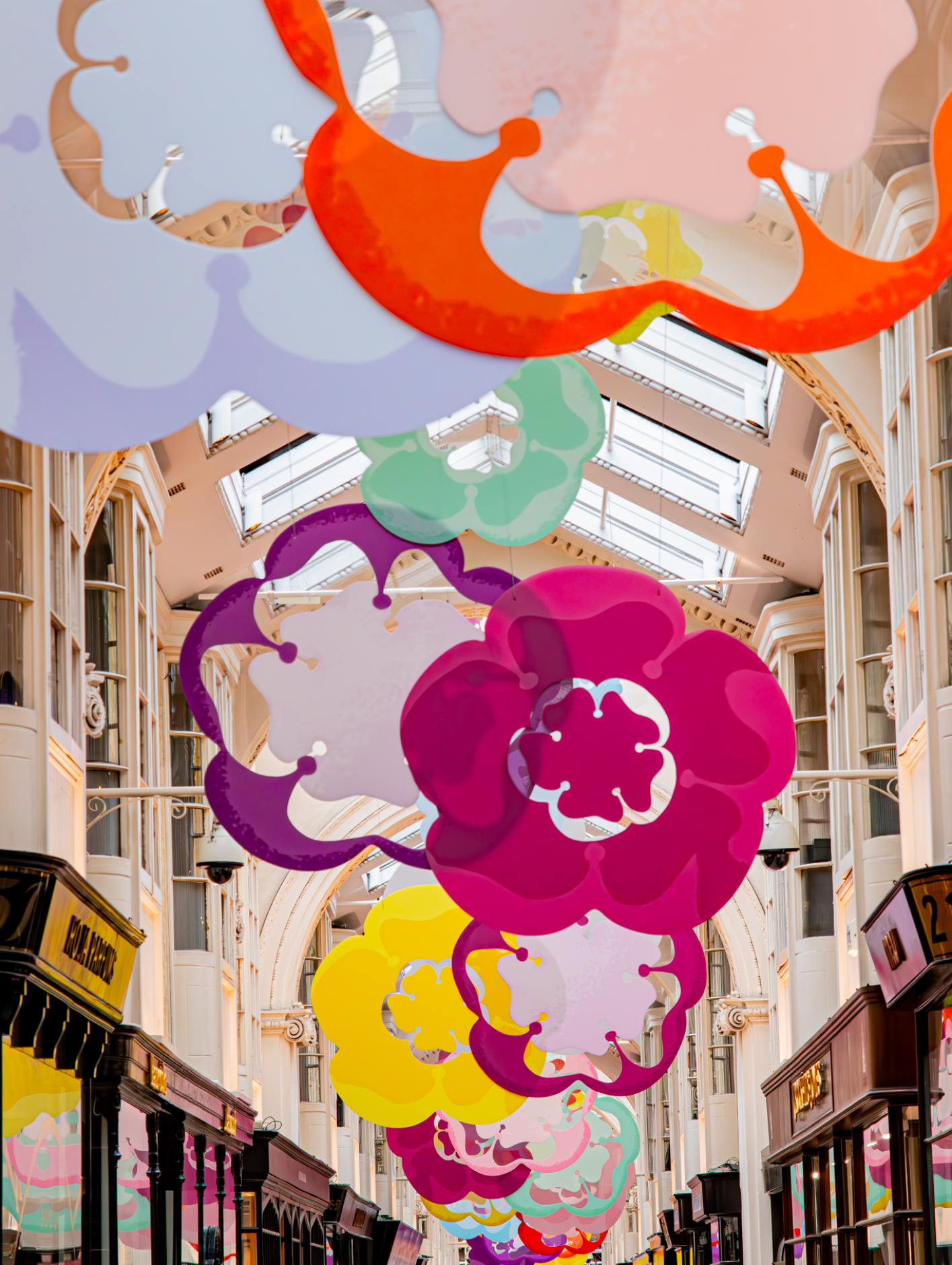WORDS
Bill Dunn
Sebastian Cox, recommending his beautifully simple Bayleaf desk. Cox is a furniture designer and maker who combines old and modern techniques. ‘Some people mistakenly think I’m nostalgic,’ he says. ‘But I’m not a purist – it’s just about being practical.’
When you visit Cox’s studio/workshop near the Thames Barrier, you might see state-of-the-art CNC cutting machines alongside a pile of chalk rocks on his desk. ‘I’m going to use them to make some medieval concrete,’ he says. ‘You grind it down and mix it with whey. I just need to make some cheese to get some whey.’ (He says this like other people might announce their intention of popping to the shops.) There’s a small jovial staff of five in the workshop, and Willow the terrier scampering around, playing with offcuts.
‘That’s what we’re selling,’ he says. ‘Furniture that has love and passion embodied in it… it’s tangible.’ It would be more profitable to divide the labour into a production line, but Cox likes to let his makers see each of their projects through from start to finish. ‘And we promise our staff they’ll never have to work with MDF, just the actual fibres of an actual tree.’
Cox thinks his current workforce is about the right size and plans on growing about as quickly as an English oak. ‘I read a book by Professor Robin Dunbar about evolutionary psychology. He says 12-20 makes a very good tribe – you’re light on your feet and you have a diversity of skills.’
Growing up around the coppiced woodlands of Kent, Cox admits he wasn’t initially interested in design. ‘I first wanted to be an inventor, to make things with my hands. That led me to wood, and the potential of wood led me to design. My quest has been to use contemporary design to create a market for a material that needs using.’
Cox believes wood is the perfect material for the 21st century because it locks up carbon dioxide in a useful material. ‘And new-growth woodland locks up CO2 more quickly than old woodland, so harvesting and regrowing wood is even more carbon-friendly.’
Having perused Cox’s website of exquisite pieces, I half expect a warehouse full of desks and tables ready to dispatch to eager clients, but most pieces are made to order.
There’s an option to have a piece made out of a tree that means something to you
‘We work with a range of 15-20 species of wood. So we love to offer the option of having a piece made out of a tree that means something to you. Plus, if you’re going to commission a desk, you might as well have it a little bit wider or narrower depending on your home. Because we’re in London, a lot of our customers can come down and pick their own boards. It’s a much more engaged process. It makes the whole thing more meaningful.’
If you have a tree you don’t want, Cox will bring his mobile mill to your garden and transform it into a piece of furniture you’ll love forever. But it’ll probably take about two years when you consider the seasoning of the wood and construction. ‘What’s interesting is that people seem to have no problem with waiting. I always thought that would be the main barrier, but they love the slow burn of excitement. It immediately sets in motion the idea of longevity. If you’re going to wait two years for a dining table, you’re going to hang on to it for the rest of your days – and you’re probably going to hand it down to your kids.’
Making furniture is a slow process, but Cox says that nothing he does ever feels like work. ‘I lose track of time. Your hands become almost autonomous – the feedback loop moves from inside your brain and to your arms. When my wife Brogan joined the business, her first objective was to get everyone to go home at 6pm!’ If you fancy learning a little of his craft, Cox offers a day’s dovetail box-making experience. ‘Everyone’s a maker – we came from hunter-gatherers so if we couldn’t make stuff, we wouldn’t have survived. We still have those genes. Around 99 per cent of our genetic history allowed us to make stuff to eat and live – there’s only one per cent that says we can’t do it anymore.’
In the future, Sebastian and Brogan plan to take on fast fashion and start producing sustainable UK linen and hemp clothing. ‘We grew flax here in medieval times – it needs almost no pesticide and doesn’t need much nitrogen or water compared with cotton. If we use modern ways of thinking to scale it up, it’s just another way of using old techniques to solve a modern problem that fast fashion has created.’
Just don’t expect it tomorrow. Cox’s products may take time, but it’s always worth it in the end.


